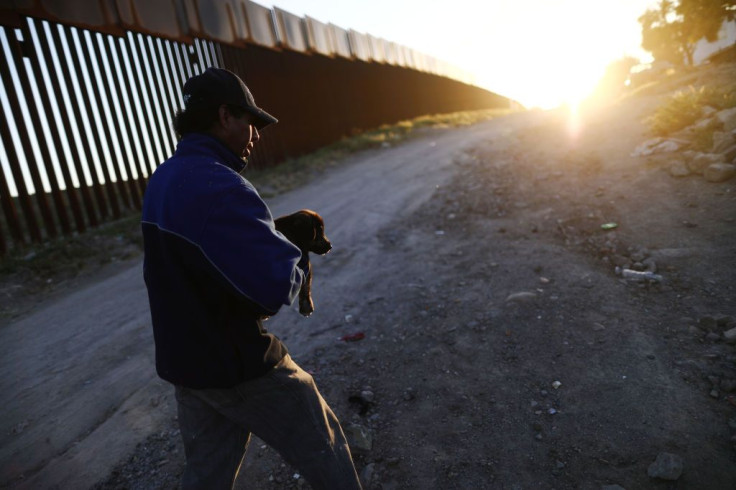Economists Warn Donald Trump Of The Impact Closing US-Mexico Border

Immigration and the U.S.-Mexico border have long been a hot-button issue for President Trump and recent threats to close the border have only ramped up tensions between the two countries and Trump's political opponents.
But economists have offered stern warnings on the effects of closing the border.
Kristin Dziczek, the Vice President of industry, labor and economics at the Center for Automotive Research, claims the automotive industry could be most affected, as the U.S. annually imports nearly $60 billion worth of parts from Mexico while exporting $32.5 billion to plants operating in Mexico.
Dziczek posted on Twitter that the U.S. auto industry would be "crippled in a week."
The North American auto industry will be crippled with a week. The threat to close the border is bigger, faster, and more economically devastating than 🥑. https://t.co/mHjPJ84QMm
— Kristin Dziczek (@kdziczek) April 2, 2019
Some sectors have already felt the immediate impact of stricter immigration laws. ABC News reported that businesses around the San Ysidro port in San Diego had to close for a day after it was closed for six hours when a large group of people attempted to cross.
The San Diego Chamber of Commerce ended up reporting a loss of $5.3 million because of that one day.
The U.S. Chamber of Commerce has also called into question the possibility of Trump closing the border. In a statement, it explained that "closing the U.S.-Mexico border would inflict severe economic harm on American families, workers, farmers, and manufacturers across the United States."
The Chamber of Commerce explains that trade between U.S. and Mexico surpasses $1.7 billion daily while half a million people cross the border legally every day.
The three states that trade the most with Mexico include Texas ($18.7 billion), California ($6 billion) and Michigan ($5.3 billion), according to U.S. Bureau of Transportation Statistics.
© Copyright IBTimes 2025. All rights reserved.




















